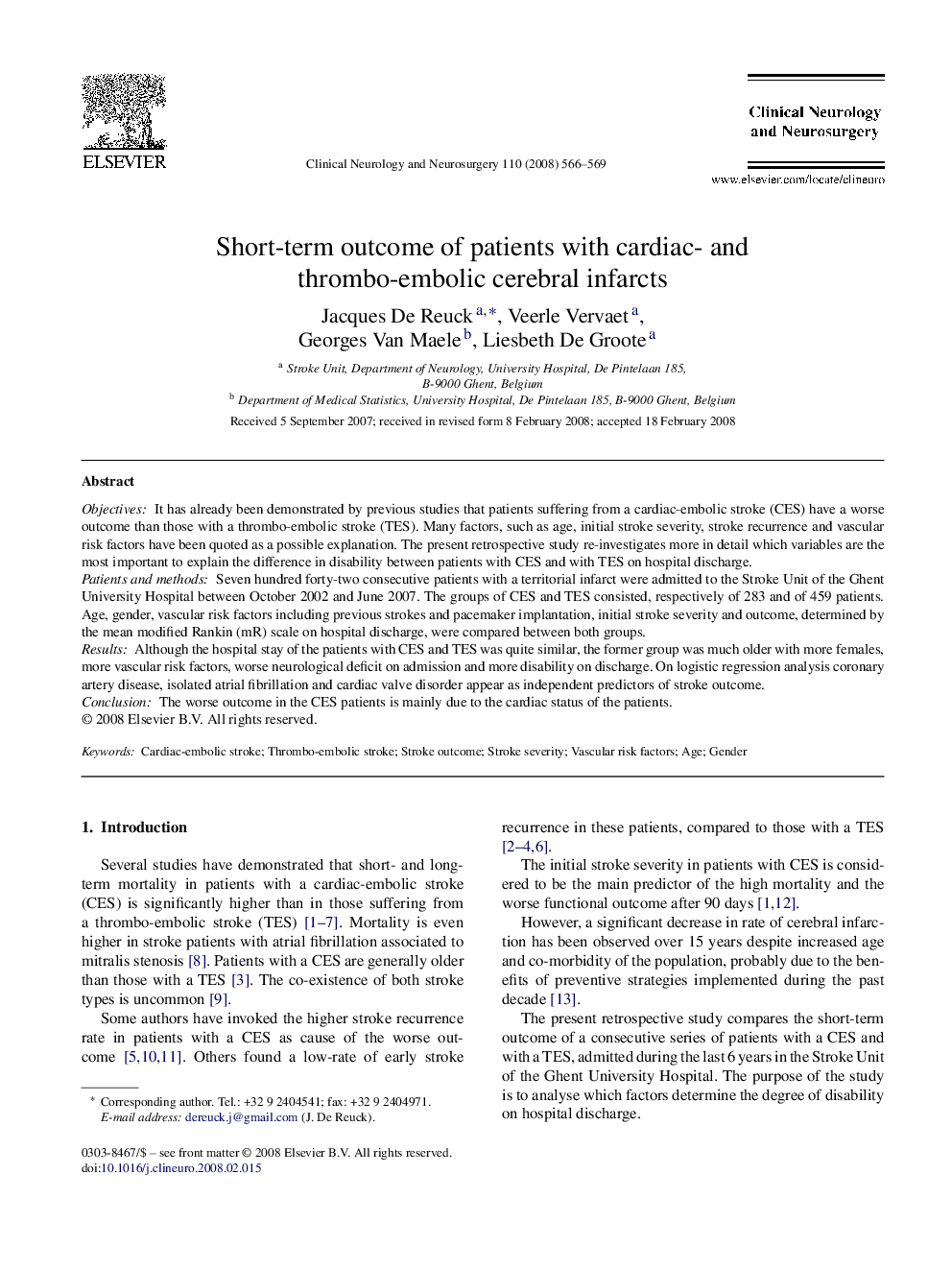| Article ID | Journal | Published Year | Pages | File Type |
|---|---|---|---|---|
| 3042341 | Clinical Neurology and Neurosurgery | 2008 | 4 Pages |
ObjectivesIt has already been demonstrated by previous studies that patients suffering from a cardiac-embolic stroke (CES) have a worse outcome than those with a thrombo-embolic stroke (TES). Many factors, such as age, initial stroke severity, stroke recurrence and vascular risk factors have been quoted as a possible explanation. The present retrospective study re-investigates more in detail which variables are the most important to explain the difference in disability between patients with CES and with TES on hospital discharge.Patients and methodsSeven hundred forty-two consecutive patients with a territorial infarct were admitted to the Stroke Unit of the Ghent University Hospital between October 2002 and June 2007. The groups of CES and TES consisted, respectively of 283 and of 459 patients. Age, gender, vascular risk factors including previous strokes and pacemaker implantation, initial stroke severity and outcome, determined by the mean modified Rankin (mR) scale on hospital discharge, were compared between both groups.ResultsAlthough the hospital stay of the patients with CES and TES was quite similar, the former group was much older with more females, more vascular risk factors, worse neurological deficit on admission and more disability on discharge. On logistic regression analysis coronary artery disease, isolated atrial fibrillation and cardiac valve disorder appear as independent predictors of stroke outcome.ConclusionThe worse outcome in the CES patients is mainly due to the cardiac status of the patients.
